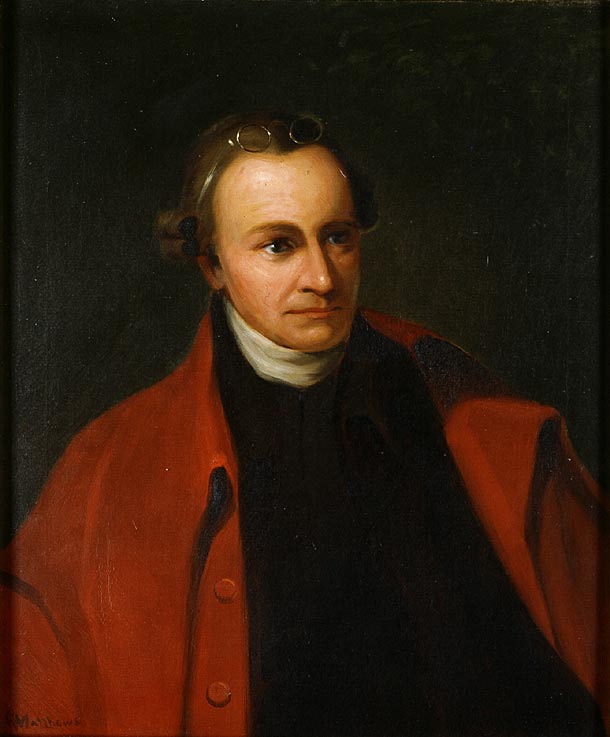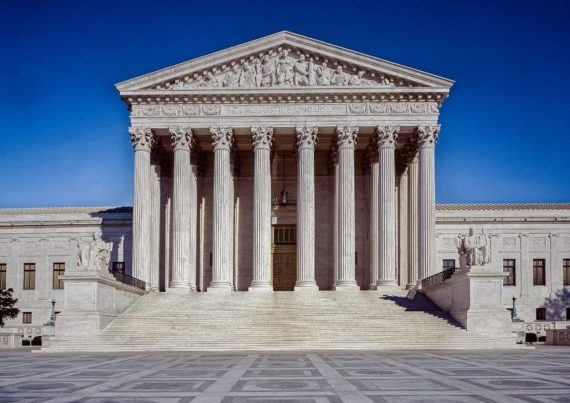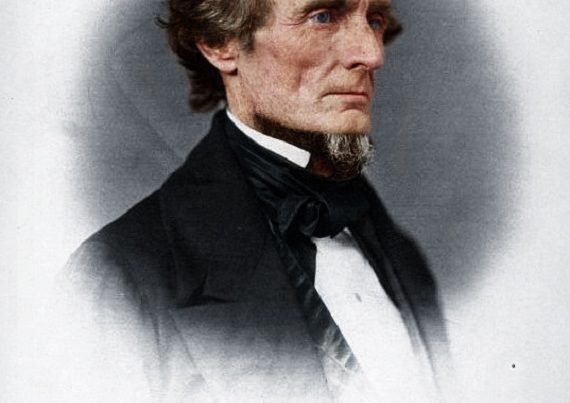Writes Thomas Jefferson to Leavit Harris concerning Patrick Henry (11 Oct. 1824):
I never heard anything that deserved to be called by the same name with what flowed from him, and where he got that torrent of language is unconceivable. I have frequently shut my eyes while he spoke, and, when he was done, asked myself what he had said, without being able to recollect a word of it. He was no logician. He was truly a great man, however—one of enlarged views.
The gist of the passage is critical, yet the sentiment in the last sentence is neither irony nor sarcasm. It is sincere. Jefferson, it seems, had an ambivalent attitude toward fellow revolutionist and fellow Virginian Patrick Henry. Henry was a man for whom Jefferson felt genuine respect for his large contribution to the revolutionary cause—his heart was in the right—but Jefferson also felt genuine disrespect because of Henry’s cavalier use of words—his head was incapable of expressing cleanly and without hyperbole what his heart rightly felt.
Henry, the first governor of Virginia, was a man of high accomplishments, due much to his oratorical talents, and he was fiery and persuasive in speech.
Henry came to prominence in the “Parson’s Cause” (1763). The Anglican clergy at the time were to be paid for their services 16,000 pounds of tobacco per year—a sum that amounted to two pennies per pound. After a poor crop in 1758, the price of tobacco rose threefold, hence inflating clerics’ salary threefold. Virginia’s House of Burgesses responded with the Two Penny Act, which fixed a clergyman’s salary at two pennies per pound. King George III subsequently vetoed the law, which caused tumult in Virginia because the king was intervening in colonial matters and essaying to coerce citizens to triple the salaries of clergymen.
Rev. James Maury, Jefferson’s mentor after the death of his father, Peter, sued Hanover County Court on April 1, 1762, for back wages. Doing so, he was representing all the Anglican clergymen, who had not received their inflated salary, and in effect representing the king and the interests of Britain. The court ruled in favor of Maury, but there was need of a jury to decide the amount of back wages owed. A jury assembled two months later. A young Patrick Henry argued against remuneration and presumably stated traitorously that the king, by his veto and intervention in colonial matters,
degenerated into a Tyrant and forfeits all right to his subjects’ obedience.
So persuasively did Henry speak that the jury awarded Maury reparation of one penny and the effect was nullification of King George’s veto.
Jefferson tells in his Autobiography of witnessing Henry’s oratorical skills when the Stamp Act was debated in 1765. Jefferson was 22. At the door of the House of Burgesses, Jefferson heard Henry speak, and was overwhelmed. Henry’s oratorical talents, says Jefferson,
were great indeed; such as I have never heard from any other man. He appeared to me to speak as Homer wrote.
The Stamp Act was mandated in 1765 as a relatively arbitrary means of collecting revenue from colonists for British purposes—most notably, for some 10,000 British troops to be stationed in North America avowedly to guard the American frontier. It mandated that many printed materials—e.g., legal papers, newspapers, magazines, and even playing cards—in the colonies were to be made from paper, stamped and produced in London.
While the actual cost of the tax on colonists was minimal, most colonists vigorously objected to a tax, made law, without colonial consent, because of its precedent. Thus, Henry, newly elected to the House of Burgesses, put forth several Stamp Act Resolves to the house, which passed the first four, which maintained in gist that colonists have
all the liberties, privileges, franchises, and immunities that have at any time been held, enjoyed, and possessed by the people of Great Britain [and that the only legitimate means of taxation is] of the people by themselves, or by persons chosen by themselves to represent them [as others cannot] know what taxes the people are able to bear.
Every law wins legitimacy only by consent of the people. Henry went so far as to assert in Resolve 7, unpassed, that anyone, through speaking or writing, asserting that any tax can be imposed on the people without approbation of the general assembly “shall be deemed an enemy to this his majesty’s colony.”
Yet Henry is best known to posterity for his fiery speech at St. John’s Church in Richmond, VA, on March 23, 1775. In it, Henry pushed fellow Virginians to take up arms against the British, whose interventions in colonial matters and large military presence posed a genuine threat to colonists’ liberty. Henry is supposed to have ended with these incendiary words:
I know not what course others may take, but as for me, give me liberty or give me death!
Jefferson quickly came to find that Henry’s capacity to inspire men—“his sublime imagination, his lofty and overwhelming diction,” says Jefferson in his Autobiography—came not from a vast storehouse of knowledge, but instead from a knack for moving men through intonation and largeness of presence. Though he had a large imagination, it was vague, unlearned, and imprecise. Henry was, said Jefferson, “the laziest man in reading I ever knew.”
Is Jefferson’s assessment of Henry correct or is it due to jealousy—to wit, that Henry enjoyed a reputation and success in oratory of which Jefferson was incapable? William Wirt—lawyer, politician, and friend of Thomas Jefferson—said of Jefferson in a eulogy on Jefferson and Adams a few years after their death.
It is true he was not distinguished in popular debate…. He had all the attributes of the mind, and the heart, and the soul, which are essential to eloquence of the highest order. The only defect was a physical one; he wanted volume and compass of voice for a large deliberative assembly; and his voice, from the excess of his sensibility, instead of rising with his feelings and conceptions, sunk under their pressure, and became guttural and inarticulate.
Yet Wirt also constructed a biography of Henry: Sketches of the Life and Character of Patrick Henry (1817). Much of what we ascribe to Henry in his incendiary speeches has come down to us through Wirt, who corresponded with Jefferson concerning particulars of the biography prior to its publication. The work is generally regarded by historians as unrepresentative of Henry because it smacks of “hero-worship,” and we know what Jefferson thought about the work, as he shelved his copy of the book in his library under “Fiction.”
While writing his biography, Wirt relied often on Jefferson for details. Jefferson replied with often lengthy letters about what he knew, what he did not know, and what could be reconstructed by written records of events. These letters offer us a vivid depiction of what Jefferson thought of Henry.
On August 4, 1805, Jefferson writes:
In matters of law it [Henry’s opinion] was not worth a copper: he was avaritious [sic] & rotten hearted. His two great passions were love of money & fame: but when these came into competition the former predominated.
Some seven years later, Jefferson says (12 Apr. 1812):
Mr. Henry’s ravenous avarice was the only passion paramount to his love of popularity. … In ordinary business [in the House of Burgesses] he was a very inefficient member. He could not draw a bill on the most simple subject which would bear legal criticism, or even the ordinary criticism which looks to correctness of style and ideas, for indeed there was no accuracy of idea in his head. His imagination was copious, poetical, sublime, but vague also. He said the strongest things in the finest language, but without logic, without arrangement, desultorily.
Two years later (14 Aug. 1814), Jefferson writes that he recollects nothing of Henry’s role in the Parson’s Cause, but he tells of Henry’s “first remarkable exhibition” in the House of Burgesses in May of 1765 and of the debate concerning his Stamp Act Resolves.
Jefferson says of the former.
It was on the motion for the establishment of an office for lending money on mortgages of real property. … I can never forget a particular exclamation of his in the debate in which he electrified his hearers. It had been urged that from certain unhappy circumstances of the Colony, men of substantial property had contracted debts, which, if exacted suddenly, must ruin them and their families, but, with a little indulgence of time, might be paid with ease. ‘What, Sir!’ exclaimed Mr. Henry in animadverting on this, ‘is it proposed then to reclaim the spendthrift from his dissipation and extravagance, by filling his pockets with money?’ These expressions are indelibly impressed on my memory. He laid open with so much energy the spirit of favoritism on which the proposition was founded, and the abuses to which it would lead, that it was crushed in its birth.
Of Henry’s Resolves, Jefferson has much to say to Wirt, and does what he can to help the biographer to decide unsettled issues. Jefferson’s account of Henry throughout is fair. He has no axe to grind. He wishes merely to get the history right. Though distrustful of Henry’s oratorical means, he compliments Henry for having taken “the lead out of the hands of those who had heretofore guided the proceedings of the House”—the “honest and able” Pendleton, Wythe, Bland, Randolph, and Nicholas.
On May 12, 1815, Jefferson tells Wirt of the years of his first acquaintance with Henry in 1759. Jefferson was 16 at the time.
We met at Nathan Dandridge’s, in Hanover, about the Christmas of that winter, and passed perhaps a fortnight together at the revelries of the neighborhood and season. His manners had something of the coarseness of the society he had frequented; his passion was fiddling, dancing and pleasantry. He excelled in the last, and it attached every one to him. The occasion perhaps, as much as his idle disposition, prevented his engaging in any conversation which might give the measure either of his mind or information. Opportunity was not wanting, because Mr. John Campbell was there, who had married Mrs. Spotswood, the sister of Colonel Dandridge. He was a man of science, and often introduced conversations on scientific subjects. Mr. Henry had a little before broke up his store, or rather it had broken him up, and within three months after he came to Williamsburg for his license, and told me, I think, he had read law not more than six weeks.
Over one year later (4 Sept. 1816), Jefferson objects to Wirt’s exaggerated account of Henry’s vast learning.
The study and learning ascribed to him, in this passage, would be inconsistent with the excellent and just picture given of his indolence through the rest of the work. … A first reading of a book he could accomplish sometimes and on some subjects, but never a second. He knew well the geography of his own country, but certainly never made any other a study. So, as to our ancient charters; he had probably read those in Stith’s history; but no man ever more undervalued chartered titles than himself.
Henry was cautious and selective in conversation.
He never, in conversation or debate, mentioned a hero, a worthy, or a fact in Greek or Roman history, but so vaguely and loosely as to leave room to back out, if he found he had blundered.
Yet Henry’s intentions were presumed to be morally founded.
He drew all natural rights from a purer source—the feelings of his own breast,
which is a clear reference to Jefferson’s notion of the moral sense, acting instinctively.
Allowing for some jealousy on Jefferson’s part—he was a soft-spoken, perhaps even clumsy speaker, while Henry had the attention of all in an audience and the respect of most—Jefferson railed against Henry’s oratorical “artistry” because of it was a verbal cosmetic. Languages were rich, diverse, historically entrenched, and ever evolving. They offered irrefutable proof of the fertility and complexity of human ideas, as well as the stark commonalities among humans, long separated by time and circumstances. Jefferson, his writings on language show definitively (e.g., “Thoughts on English Prosody”), had a full grasp of such things. He could only have considered someone like Henry, who pretended to an understanding of language he could not have had, as a vulgarian. That said, it is also clear, from scattered comments, that despite Henry’s uncouth and earthy catachresis, Jefferson fully respected Henry as a man of sound moral instincts and knew that without such men, the American Revolution might not have been successful.
Thus, it is best not to ascribe ambivalence to Jefferson concerning Henry. The depiction Jefferson gives in writings on Henry is not a matter of conflicted feelings. It is about essaying to leave behind a correct picture of Patrick Henry, the man. And though the man had numerous shortcomings, he was also proudly patriotic and was possessed of morally correct intuitions concerning the just path for colonists to take concerning British interloping in American affairs.







Thomas Jefferson described Patrick Henry as “all tongue without either head or heart.”
The clash between Patrick Henry, Thomas Jefferson, and James Madison over the relationship between church and state in Virginia during the late 18th century sheds light on the evolving understanding of religious freedom in American history.
Patrick Henry’s proposal in 1777 to levy taxes to support churches of individuals’ choice reflected his belief in the importance of religion in fostering moral virtue and social cohesion.
Henry argued that providing financial support for churches would promote religious diversity and accommodate the various religious beliefs of Virginia’s citizens. This proposal represented a departure from the previous system of an official state church, which had been established in Virginia during colonial times.
Thomas Jefferson and James Madison, however, were staunch advocates for the separation of church and state. They believed that government interference in religious matters infringed upon individual freedom of conscience and violated the principle of religious liberty.
Jefferson famously articulated this view in his Virginia Statute for Religious Freedom, which was passed in 1786 and laid the groundwork for the First Amendment to the United States Constitution.
The clash between Henry, Jefferson, and Madison highlights differing perspectives on the role of religion in public life and the appropriate relationship between church and state. While Henry’s proposal represented a compromise compared to the establishment of an official state church, Jefferson and Madison advocated for a more radical vision of religious freedom, one that safeguarded individuals’ rights to worship (or not) according to their own conscience, free from government interference or coercion.
Ultimately, Jefferson and Madison’s vision prevailed, as Virginia’s commitment to religious freedom was enshrined in law and later affirmed at the national level through the First Amendment. The debate over church-state relations in Virginia reflected broader philosophical and political debates occurring throughout the young nation and laid the groundwork for the principles of religious liberty.
Fine addendum. Thank you.
Didn’t Jefferson once lament that Patrick Henry “just wants to go hunting all the time”?
Good stuff, Mark. Now, do Hamilton.
Do not recall the hunting quote. AH is next. Doing him today….
I probably remembered Dumas Malone’s words characterizing Jefferson’s assessment of Henry as Jefferson’s own. According to Malone, Jefferson considered Henry as “no man of science and learning”.
“To Jefferson [Henry’s] passion seemed to be for fiddling, dancing, and pleasantry… . His manners had something of the coarseness of the poor hunters with whom he loved to pursue deer in the piney woods and to crack jokes around the campfire”.
Absolutely. There was certainly lack of respect in some sense for slothfulness, though he lauded PH for his heart.
The Founders, as with all men (and women!) were vain, some moreso than others. I remember reading in several places that George Washington did not like to be criticized. Well, to begin with, NOBODY likes to be criticized. However, what I also read is that Washington did not like being maligned ~ and that’s a VERY different thing! Indeed, he accepted criticism where he felt it was due and even gave thanks to those who helped him to see and understand whatever mistakes he had made. But here, much of Jefferson’s criticism of Henry seems rooted in his envy of the latter’s gifts. Jefferson had the words but not the means of expressing them while Henry had both. Furthermore, both men moved in the same circles and were on the same side of the issues of the day. That made it even more difficult for Jefferson. Had they been on different sides, Jefferson could have directed his criticism at Henry’s viewpoint and not his ability to express it.
TJ asserts that PH did NOT have the words, but morally correct intentions. Thanks.